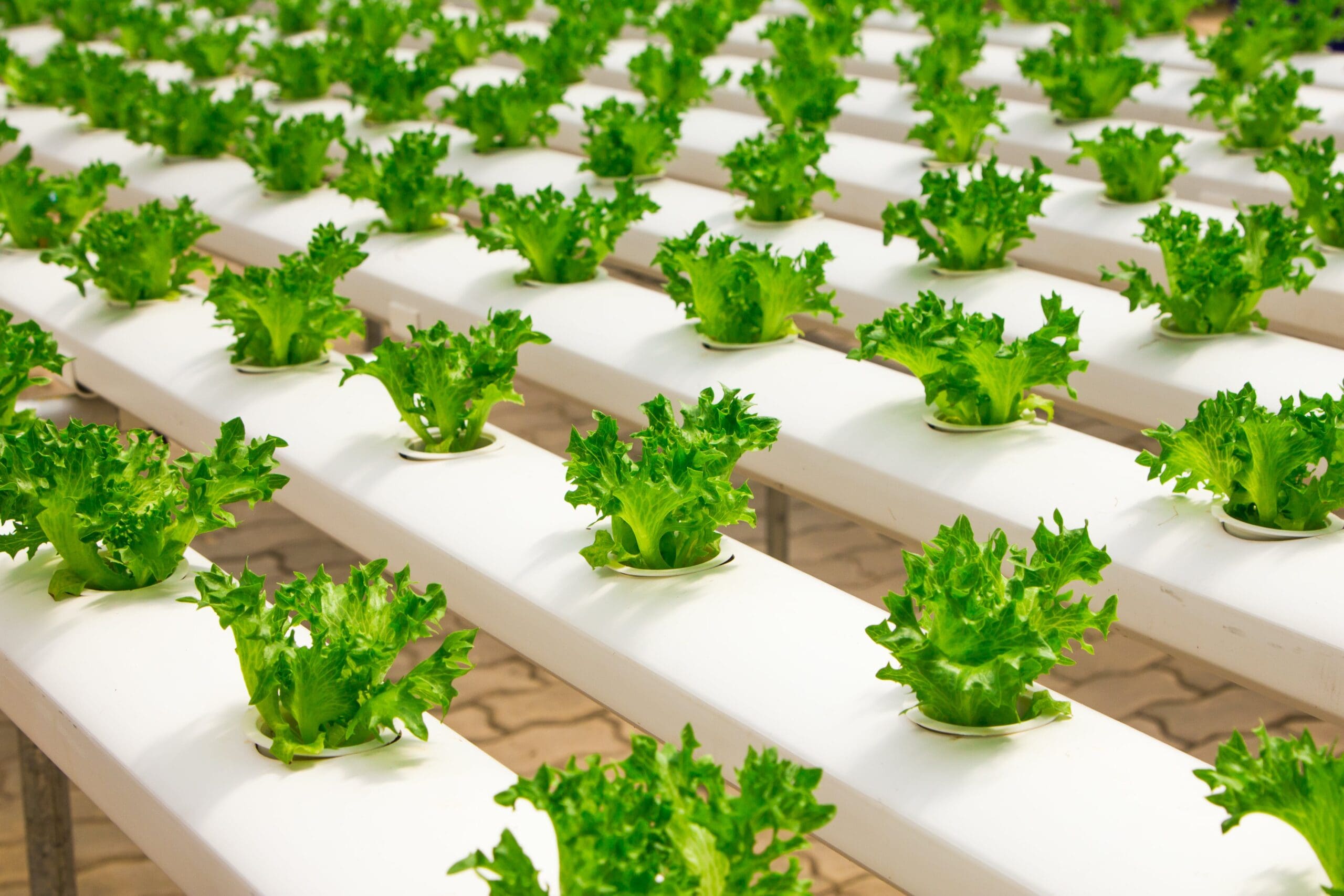Cultivating A Greener Future For Kenya’s Biodiversity
As the world grapples with the challenges of climate change and environmental degradation, the need for sustainable practices in agriculture has become more critical than ever. In Kenya, a country known for its rich biodiversity and agricultural heritage, sustainable agriculture offers a viable solution to address these pressing issues. By adopting eco-friendly and resource-efficient farming methods, Kenya can not only protect its natural resources but also ensure food security for its growing population.

- Impact Hub Nairobi
- Grace M
The Importance of Sustainable Agriculture for Kenya’s Biodiversity
Kenya’s biodiversity is one of its greatest assets, providing a habitat for a wide range of plant and animal species. However, traditional farming practices, such as excessive use of chemical fertilizers and pesticides, have taken a toll on the environment, leading to soil degradation, water pollution, and loss of biodiversity. Sustainable agriculture aims to reverse this trend by promoting practices that conserve soil health, protect water resources, and preserve natural habitats. By embracing sustainable farming, Kenya can safeguard its unique biodiversity and ensure a greener future for generations to come.
Benefits of Sustainable Agriculture
Sustainable agriculture offers numerous benefits for both the environment and society. One of the key advantages is the conservation of soil health. By minimizing the use of synthetic fertilizers and practicing crop rotation, sustainable farmers can maintain soil fertility and prevent erosion. This not only improves the quality of the land but also enhances its long-term productivity.
Moreover, sustainable agriculture promotes water conservation by minimizing water usage and implementing efficient irrigation techniques. This is especially crucial in Kenya, where water scarcity is a significant concern.
Additionally, sustainable farming methods reduce greenhouse gas emissions, contributing to the fight against climate change. By sequestering carbon in the soil and using organic waste for composting, farmers can play a vital role in mitigating global warming.

Principles of Sustainable Farming
Sustainable farming is guided by a set of fundamental principles that prioritize the long-term health and productivity of the land. One of these principles is biodiversity conservation. By cultivating a diverse range of crops and incorporating natural habitats within agricultural landscapes, farmers can support a thriving ecosystem and promote natural pest control.
Another principle is resource efficiency, which involves using inputs such as water, energy, and fertilizers judiciously. By adopting precision farming techniques and embracing organic practices, farmers can optimize resource allocation and reduce waste.
Other key principles of sustainable farming include soil conservation, waste management, and community engagement. By adhering to these principles, farmers can create a harmonious and sustainable relationship between agriculture and the environment.
"The value of biodiversity is that it makes our ecosystems more resilient, which is a prerequisite for stable societies; its wanton destruction is akin to setting fire to our lifeboat"
Johan Rockstrom

Sustainable Farming Practices
Sustainable farming encompasses a wide range of practices that aim to minimize environmental impact while maximizing productivity. One such practice is agroforestry, which involves integrating trees and shrubs into agricultural systems. This not only enhances biodiversity but also provides additional income streams through the sale of timber and non-timber forest products.
Another practice is conservation agriculture, which involves minimal soil disturbance, permanent soil cover, and crop rotation. This approach helps to improve soil structure, reduce erosion, and conserve moisture.
Additionally, sustainable farmers prioritize the use of organic fertilizers and pesticides derived from natural sources. These practices not only improve soil health but also ensure the safety of consumers and the environment.
Organic Farming as a Sustainable Agriculture Method
Organic farming has gained significant popularity as a sustainable agriculture method in Kenya. By eliminating the use of synthetic fertilizers and pesticides, organic farmers protect soil health, reduce chemical pollution, and promote biodiversity.
Organic practices also prioritize the use of renewable resources, such as compost and manure, for nutrient management. Moreover, organic farming promotes the well-being of farm animals by adhering to strict animal welfare standards.
In recent years, the demand for organic produce has been on the rise, both locally and globally, providing an economic incentive for farmers to adopt sustainable practices. By embracing organic farming, Kenya can position itself as a leader in sustainable agriculture and tap into the growing organic market.
Challenges and Solutions in Sustainable Agriculture
While sustainable agriculture offers numerous benefits, it also faces several challenges in implementation.
One of the main obstacles is the lack of awareness and technical knowledge among farmers. Many farmers are still reliant on conventional farming methods and are unaware of the potential benefits of sustainable practices.
To address this, educational programs and training initiatives need to be implemented to disseminate knowledge and provide support to farmers transitioning to sustainable agriculture.
Another challenge is the limited access to financial resources and market opportunities for sustainable farmers. To overcome this, government and non-governmental organizations should provide financial incentives, such as subsidies and low-interest loans, as well as facilitate market linkages for sustainable produce.
Collaboration among stakeholders, including farmers, policymakers, researchers, and consumers, is essential in tackling these challenges and ensuring the successful adoption of sustainable farming practices.
Case Studies of Successful Sustainable Farming in Kenya
Kenya has several inspiring case studies of successful sustainable farming practices.
One such example is the Mlango Organic Farmers’ Group in Nyeri County, which has embraced organic farming methods and diversified their crop production. By adopting organic practices, the farmers have experienced increased yields, improved soil fertility, and reduced input costs.
Another notable case study is the Kilimo Salama project, which provides affordable crop insurance to smallholder farmers. This initiative has enabled farmers to manage risks associated with climate change and natural disasters, promoting long-term sustainability in agriculture. These case studies serve as models for other farmers and demonstrate the tangible benefits of sustainable agriculture.
Support and Resources for Sustainable Agriculture in Kenya
For farmers interested in transitioning to sustainable agriculture, there are several support systems and resources available in Kenya. One such resource is the Kenya Organic Agriculture Network (KOAN), which provides training, certification, and market linkages for organic farmers.
The Kenya Agricultural and Livestock Research Organization (KALRO) is also actively involved in promoting sustainable farming practices through research and extension services.
Additionally, farmers can access financial support through programs such as the Green Agriculture Promotion Program (GAPP) and the Agriculture Sector Development Support Program (ASDSP). By leveraging these resources and support networks, farmers can overcome barriers and successfully adopt sustainable farming methods.
Conclusion: The Future of Sustainable Agriculture in Kenya
Sustainable agriculture holds immense potential for Kenya’s biodiversity and agricultural sector. By prioritizing eco-friendly practices, conserving natural resources, and embracing organic farming, Kenya can cultivate a greener future for its people and the environment.
However, achieving widespread adoption of sustainable agriculture requires collaborative efforts from farmers, policymakers, researchers, and consumers.
By joining hands and supporting communities like the Impact Hub Nairobi, which provides access to local and global resources and insights, we can create a sustainable agricultural system that not only nourishes our bodies but also protects our planet. Together, let us work towards a future where sustainable agriculture is the norm, ensuring a thriving and biodiverse Kenya for generations to come.
Join the Impact Hub Nairobi to access local and global resources and access potential partners.
PRESERVING KENYA’S RICH BIODIVERSITY IN THE FACE OF CLIMATE CHANGE: CHALLENGES AND SOLUTIONS
By engaging communities, implementing sustainable practices, and raising awareness, Kenya is taking a proactive approach to safeguarding its natural heritage and ensuring a sustainable future for generations to come.
You also might like

Monthly Budget Planner: Free Templates for Financial Success
Monthly Budget Planner: Free Templates for Financial Success

Are You Missing Critical IP Protections for Your Startup?
Are You Missing Critical IP Protections for Your Startup?


